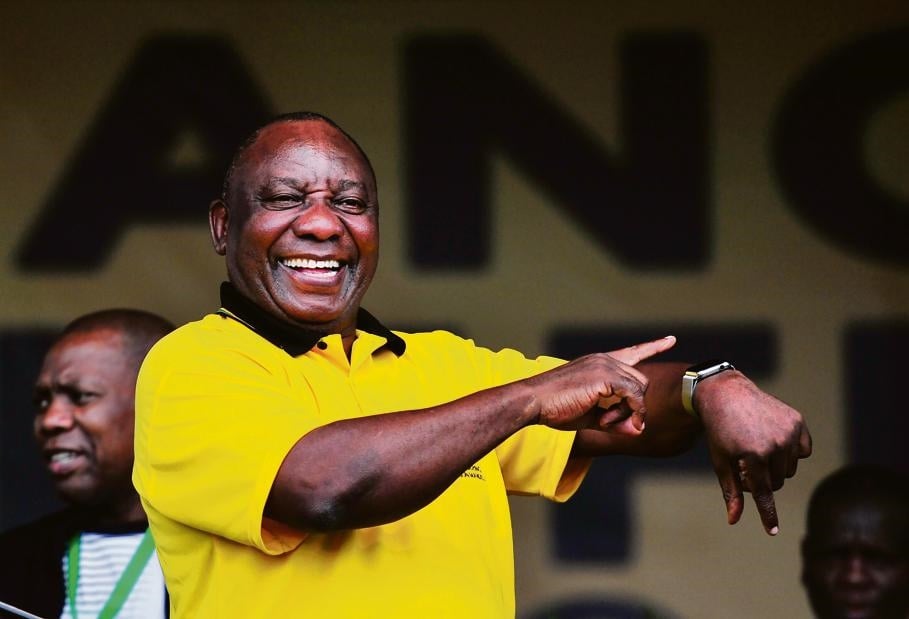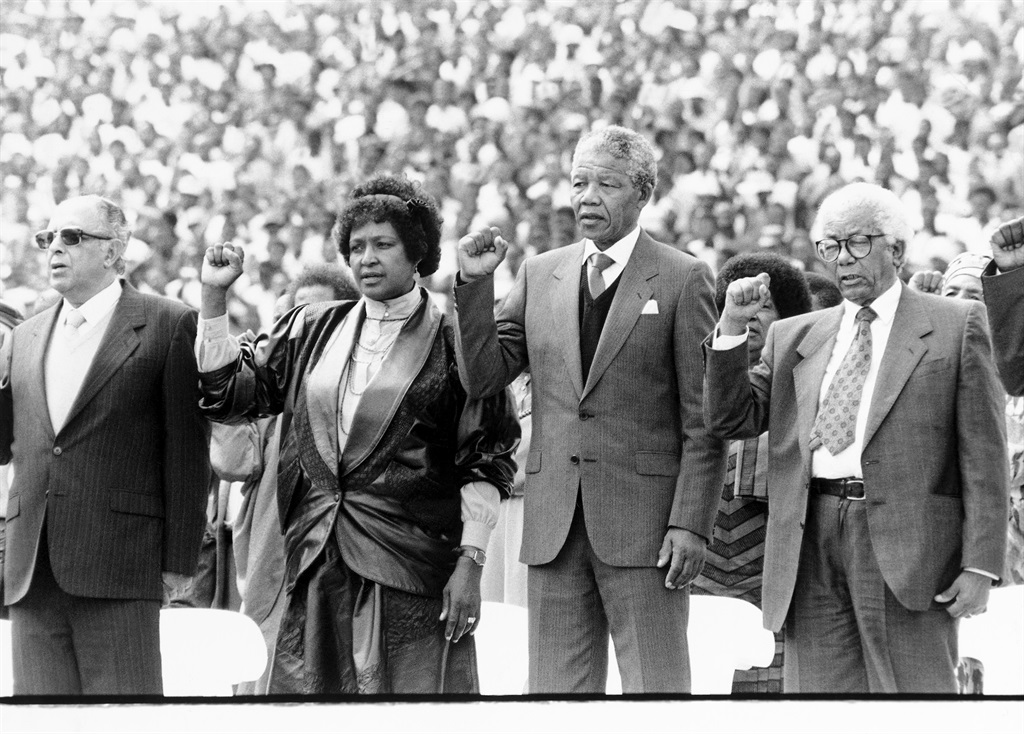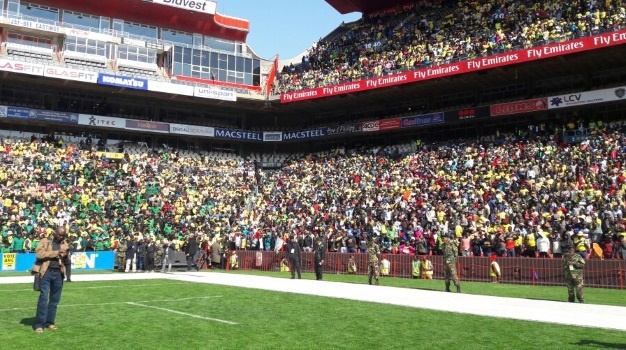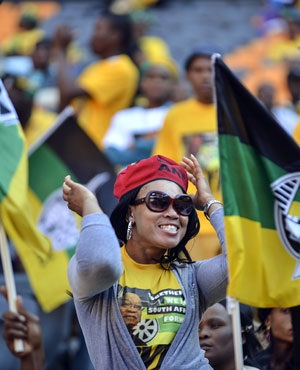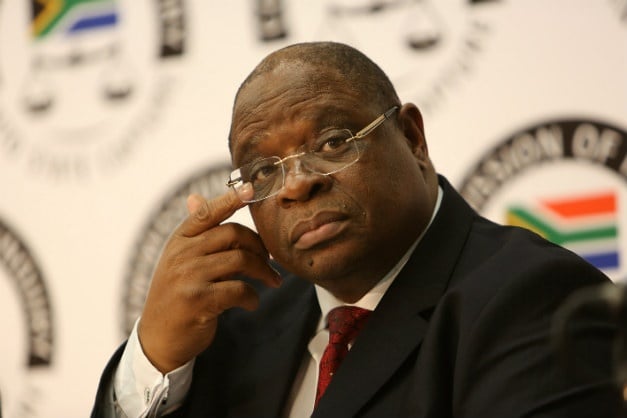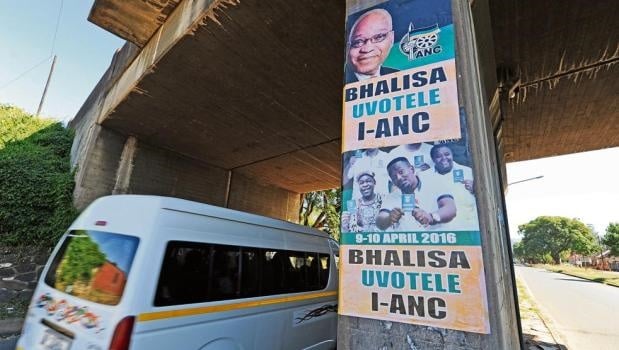
The ANC has been the dominant political party since 1994, scoring overwhelming victories in every general election since the advent of democracy. It has been plagued by corruption and scandal over the last decade – but is the edifice cracking, or will it hold once more?
The last 12 months have possibly been the worst in the ANC’s history, bar perhaps in 1960 when it was banned by the apartheid government for 30 years. It is fighting a loss of support, the effects of poor governance and its own complicity in the looting of the public purse.
The country has since the last general election been fed a steady diet of corruption and criminality, collapsing governance and maladministration, infighting and backbiting, all on account of internal ANC power struggles and corruption. In the last six months there have been four commissions or committees of inquiry into impropriety in the state (the Zondo commission into state capture, the Nugent commission into SARS, the Mokgoro inquiry into, effectively, the National Prosecuting Authority and the Mpati commission into the Public Investment Corporation).
Add to that the near-collapse of the national electricity grid and the continuing deterioration of Eskom, allegations of sex crimes against senior ANC figures, resistance against President Cyril Ramaphosa’s reform plans in state and party and the dire state of the national finances, and the party should be reeling, bleeding support and in panic mode.
The lastest research from the Institute of Race Relations indicates that it is indeed shedding support, dropping to 54,7% nationally, and with a high voter turnout rate increasing that number marginally to 55%. The ANC secured support of 62,15% in 2014.
But indicators, including this and other polls, suggest that the ANC must prepare to suffer significant losses on May 8. And the expected low voter turnout might exacerbate the party’s problems, because according to the IRR’s research if voters stay away from the ballot box, it will be to the detriment of the governing party, who in 2014 already started to feel the pinch of its base opting to stay away on voting day. (Only 57% of eligible voters, including registered and unregistered voters 20 years and older, cast a ballot in 2014.)
The ANC is crippled by a number of weaknesses ahead of the election which should impact visibly on the final tally.
State capture and corruption
The ANC has undoubtedly been the single most important enabling factor in the widespread proliferation of state capture and grand corruption over the last decade. President Cyril Ramaphosa has referred to his predecessor Jacob Zuma’s “nine wasted years”, a remarkable concession given that he was part of that government since 2014 and the party’s leadership since 2012.
But the daily revelations at the judicial commission of inquiry into allegations of state capture has laid bare precisely how institutionalised corruption and maladministration has become under this government. A succession of senior government officials and ministers, current and former, have described a party and government unable, and seemingly unwilling, to rein in the excesses of looting and capture. The ANC’s leadership during this period was clearly aware of what was unfolding, as did the rest of South Africa thanks to revelations in the media and investigations by then public protector Thuli Madonsela.
But it chose to blindly support Zuma, even in the face of overwhelming evidence in the public domain, white-washed parliamentary inquiries and an active civil society.
These revelations, often and regularly dimissed by the ANC and its spokespersons, as well as by its deployees in the national legislature, are now mostly common cause, and much of it revealed by the procession of inquiries and commissions instituted by Ramaphosa.
The EFF and the rising tide of populism
Julius Malema is a modern populist. He uses inflammatory rhetoric, be it about race, land or the economy, to galvanise disaffected and angry potential voters and promising them dramatic political changes should he come to power.
Malema and the EFF have identified a number of hot-button issues, all in some way or another linked to the country’s history of segregation and economic disparities and elevated it into emblems of the ANC’s failures. Race, land and capitalism are Malema and the EFF’s most popular go-to issues and tend to send social media into a meltdown. All three issues have related problems that are almost intractable, and the EFF has managed to blame incidents of racism, problems with land reform and economic disparities as a function of the ANC’s refusal and reluctance to address them.
The EFF’s leader also retains strong links to a number of ANC leaders which ensures that he receives regular and detailed intelligence about internal party affairs. It has enabled the party to have the strategic edge on the ANC, whose many frustrated and disillusioned supporters are receptive to new political messages.
In a time where trust in the political system is at its lowest in memory the promise of a party that has taken a flame-thrower to political convention and process will have much appeal.
A failing government
In elections past the ANC was able to draw on its post-apartheid record in providing accessible basic services to millions of exluded South Africans. But that message started to fray at the edges a little bit in 2014 and started to unravel in 2016.
Today the state and government are deeply ineffective, from the provision of social services to infrastructure and other public goods. State-owned companies like Eskom are close to collapse, poor stewardship of the economy thanks to uncertain and hostile policies have strangled the economy and municipalities are generally failing in their core mandate, service delivery.
South Africans of all hues and political persuasions feel the impact of this decline daily, whether it affects water and electricity, the provision of toilets and sewerage systems or unemployment. Some years ago, before the disastrous 2016 municipal election, Zuma said the ANC “has a good story to tell”. It's going to be challenging to sell that message this time around.
Economy and unemployment
South Africa’s rates of unemployment and inequality has remained among the worst in the world for the last decade. Trevor Manuel, a former minister of finance, told the commission of inquiry into state capture that the economy in 2007 and 2008 grew at an average of between 4,5% and 5%. This year it will struggle to reach an average of 1%.
The Zuma years saw skyrocketing debt levels, an increasing budget deficit and a widening current account balance. Government is increasingly spending money to repay debt, paying more thn 35% of the national budget on wages and salaries and labour laws that make job creation and enterprise exceedingly difficult.
The ANC has been so inwardly focused and set on defending Zuma that national interest and policy development has not only lagged but have all but disappeared from government.
This has meant that high levels of unemployment remain pervasive and economic opportunity evasive. The ANC have scored a deluge of own goals before an election where South Africans are suffering from poor services, high tax levels, expensive water, electricity and consumer goods.
On the economy – jobs and money – the ANC has a horror story to tell.
The ANC has however retained its position as the dominant political party over the last 25 years through a combination of historic loyalty, the advantages of being in government and a formidable election machine.
History
One of the legacies bequeathed on democracy was the repercussions of apartheid. Uneven development, unequal access to services and opportunity and an unfair societal structure have left its collective scars on the majority of South Africans.
And the ANC knows this. The party’s brand as the leader of the liberation movement is enormously strong and it has been able to draw on a core of loyal voters in every election. Although there has been a steady decline in support since the halcyon days of 2004 when, under former president Thabo Mbeki, it secured 69,69% support, the low bar of approval by voters has ensured that the slide is more slippage than collapse.
Townships with running and warm water, electricity and new schools have ensured loyalty even in the face of mounting evidence of corruption and poor governance.
The ANC knows this and will trot out the imagery of former leaders like Nelson Mandela to evoke memories of apartheid and suppression in order to get the vote.
A well-oiled campaign machinery
Few parties have the scope and reach of organisation than the ANC. It has an ability to motivate its supporters unequalled in local politics. Its network consists of a well established system of party branches, the wider structures of the tripartite alliance consisting of Cosatu and its affiliated trade unions and a number of ANC aligned non-governmental organisations.
Historically augmented by millions of rand in an election war chest (the party spent more than a billion rand in the 2016 municipal election) it has been able to blanket the country in posters, t-shirts, radio and television advertisements and venue hire in order to ensure that the party’s message stays consistent and in the faces of potential voters.
Its rallies are colourful, loud and dramatic shows of force in front of thousands of people in mega-stadiums where old battles against apartheid are fought all over again. Imagery at stadiums rely on the faces of leaders like Mandela, Tambo and Sisulu while present day problems are ascribed to the country’s divided history. And it works.
Ramaphosa
The so-called “new dawn” has convinced many sceptical South Africans to give Rampahosa a chance to right what Tony Leon describes as the “listing ship of state”.
Because he is considered a constitutionalist and a reformist within the party the idea that a vote for the ANC is a vote against corruption and for the recovery of the state has been growing. Internal ANC polls have showed that Ramaphosa enjoys a higher approval rating among the public than the party itself, which led to one Ramaphosa confidante saying this election will show whether it will be the president lifting the ANC or the ANC weighing down the president.
Either way, he seemingly enjoys more trust among all different electoral demographic groups than his predecessor and it seems like voters who traditionally voted for the opposition are increasingly willing to aid Ramaphosa in his clean-up efforts and give him their vote.
The party knows this and if it's smart will leverage it to the hilt.




 Publications
Publications
 Partners
Partners




